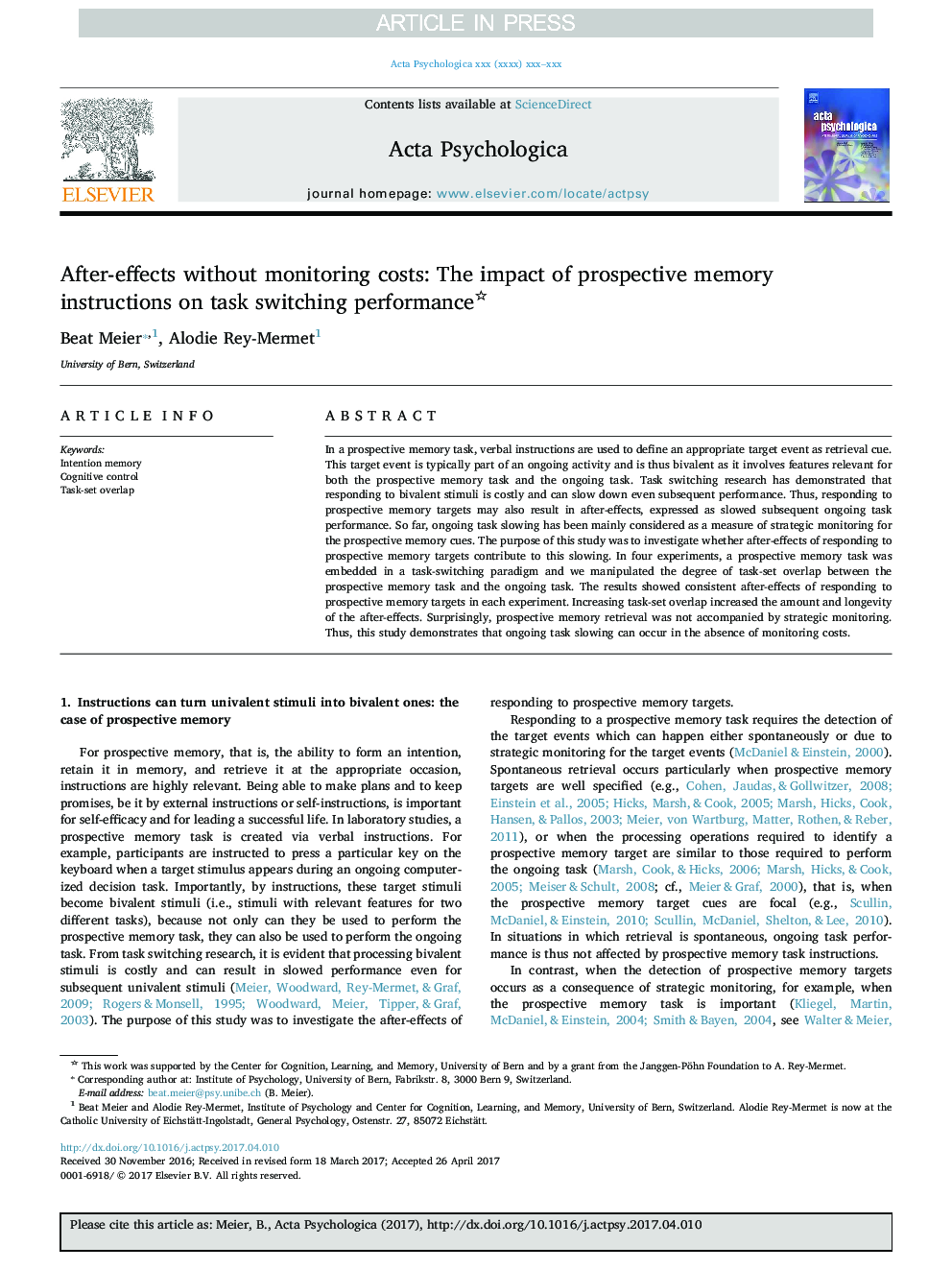| Article ID | Journal | Published Year | Pages | File Type |
|---|---|---|---|---|
| 7276801 | Acta Psychologica | 2018 | 15 Pages |
Abstract
In a prospective memory task, verbal instructions are used to define an appropriate target event as retrieval cue. This target event is typically part of an ongoing activity and is thus bivalent as it involves features relevant for both the prospective memory task and the ongoing task. Task switching research has demonstrated that responding to bivalent stimuli is costly and can slow down even subsequent performance. Thus, responding to prospective memory targets may also result in after-effects, expressed as slowed subsequent ongoing task performance. So far, ongoing task slowing has been mainly considered as a measure of strategic monitoring for the prospective memory cues. The purpose of this study was to investigate whether after-effects of responding to prospective memory targets contribute to this slowing. In four experiments, a prospective memory task was embedded in a task-switching paradigm and we manipulated the degree of task-set overlap between the prospective memory task and the ongoing task. The results showed consistent after-effects of responding to prospective memory targets in each experiment. Increasing task-set overlap increased the amount and longevity of the after-effects. Surprisingly, prospective memory retrieval was not accompanied by strategic monitoring. Thus, this study demonstrates that ongoing task slowing can occur in the absence of monitoring costs.
Keywords
Related Topics
Life Sciences
Neuroscience
Cognitive Neuroscience
Authors
Beat Meier, Alodie Rey-Mermet,
